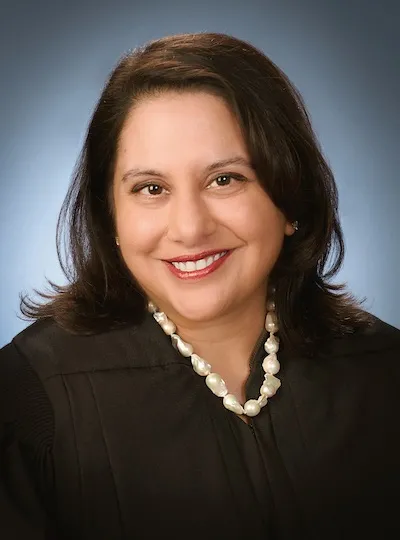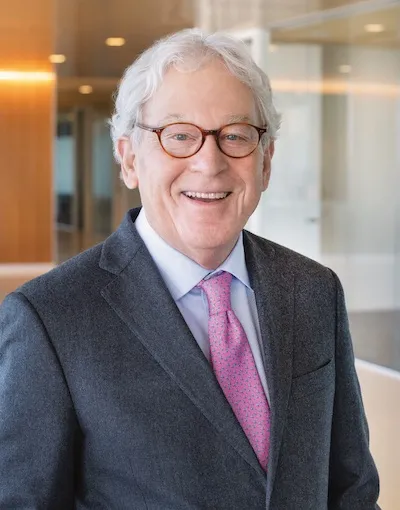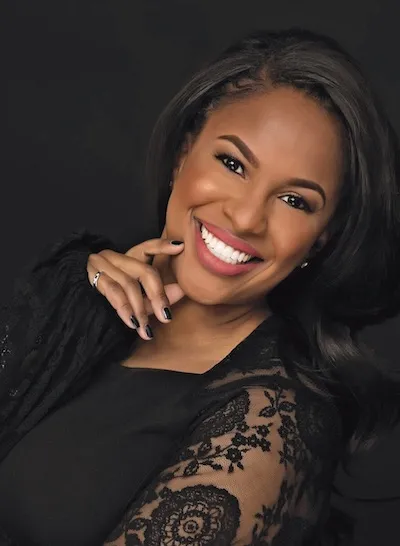A Graduation Like No Other

The University of Chicago Law School Class of 2020 celebrated its graduation as no class has before: with a virtual Diploma and Hooding Ceremony in the middle of a global pandemic. The Law School aired the ceremony on Saturday, June 13, after the University-wide virtual convocation. The historic hooding ceremony included a slide dedicated to each graduate and messages from notable alumni, four faculty hooders, and Dean Thomas J. Miles.
Across the country, the new Law School graduates celebrated the day privately with family and small groups of friends. You can watch the virtual ceremony, view the hooding ceremony booklet, and see messages from faculty, staff, and students from other classes on the Class of 2020 Kudoboard.
Remarks by Dean Thomas J. Miles
Note: Dean Thomas J. Miles, the Clifton R. Musser Professor of Law and Economics, spoke twice at the beginning of the virtual Diploma and Hooding Ceremony: he delivered formal remarks that were filmed several weeks in advance in graduation regalia, and he offered an introduction that was filmed in the Green Lounge days before the ceremony. Both are included here.
Introduction
Members of the Class of 2020, congratulations on your graduation from the University of Chicago Law School. We’re tremendously proud of your accomplishment, and we’re eager to celebrate with you during this remote hooding ceremony. We wish we could celebrate with you and with your family and friends in person, but the COVID-19 pandemic prevents us from doing so.
Two months ago, when it became clear that we would not be able to hold the hooding ceremony in person, we thought hard and imaginatively about how we could make a remote ceremony special and meaningful. And then we got to work. We planned. We developed. We assembled the ceremony over the course of two months.
In the ceremony that follows, you will see greetings and messages from faculty, from friends of the Law School, and from me. In order to have a smooth-running ceremony, to accommodate schedules, and to maintain social distancing as we prepared this ceremony, some of the messages were prepared in advance. The messages therefore do not reference the brutal killing of George Floyd and the events that have shaken our country over the past two weeks. These events come after the repeated similar deaths of other African Americans and the disproportionate impact of the COVID pandemic, economic turmoil, and upheavals in many cities.
As I wrote in my message to the Law School community last week, it is a particularly hard moment for our country. Police brutality and racism are insidious and unacceptable, and they raise profound questions about law, race, and justice. I also expressed the hope that the events will inspire a renewed sense of dedication to equal justice under law, and that I look forward to what our graduates will accomplish in restoring public trust and advancing equal justice under law.
Please know that the constraints of assembling this ceremony don’t diminish in any way the greetings, the messages of congratulations, and the best wishes for the future, or make them any less heartfelt, enthusiastic, or hopeful. Graduation from the University of Chicago Law School is a tremendous accomplishment. It deserves a moment—more than a moment—of celebration.
Class of 2020, you have learned a lot. You have achieved a lot. Congratulations. Enjoy the ceremony.
Diploma and Hooding Ceremony Remarks
Members of the class of 2020, family, friends, welcome to the 22nd Annual Hooding Ceremony of the University of Chicago Law School, Remote Edition. I’m Tom Miles, dean of the Law School. Welcome. Today is a day to celebrate the accomplishments of the class of 2020.
You, the members of the class of 2020, have accomplished a great deal. It was not long ago that you first came to law school and went to your very first class. That class may have been your first in a graduate program and your first encounter with the Socratic method. You may remember approaching that first class with a sense of excitement, curiosity, even anxiety.
In that first class or shortly thereafter, you encountered a reservoir that flooded a neighboring mine. You encountered a group of shipwrecked voyagers who resorted to cannibalism. And you encountered an automobile distributor that sought to avoid litigation in Oklahoma.
Your encounters with these characters and many others were then the focus of your close study, and perhaps were sources of confusion, even frustration. Now, these characters prompt a nod of recognition and perhaps a touch of nostalgia. The fact that they now prompt nostalgia and the fact that the Socratic method no longer makes you nervous indicates how much you have learned and how much you have grown in your time at the Law School.
You have learned a great deal of the law itself. You learned legal doctrine. Between now and the bar exam—still July in some states, September in others, October in a few—you will surely learn much more of the content of law. But much of your learning at the Law School was not about specific points of doctrine. Rather, you learned how to think about legal problems, how to interpret legal texts, how to engage in common law reasoning, how to disentangle thorny legal problems, and how to find solutions that would have benefits for all involved.
You have learned to approach legal questions with a rigorous thought and careful reasoning and to examine questions from multiple perspectives. An analytical approach requires an openness to ideas and a commitment to subject those ideas to careful scrutiny. This dedication to, and indeed joy in, serious analytical inquiry has long been the hallmark of the University of Chicago lawyer.
With the conferral of your degrees, you become a University of Chicago lawyer, too. But to the extent that you have already dedicated yourself to serious analytical inquiry and law, and the fact that you are here today suggests you have already been transformed into that University of Chicago lawyer. You are no longer the student who is apprehensive or confused about the shipwrecked voyagers, the flooding reservoir, or the site of the automobile distributor’s litigation. You are now a lawyer equipped to think about and to tackle the hardest cases.
Now, just as you were about to complete law school and become that lawyer, just as you were about to enjoy your last quarter and perhaps savor a bit of that accomplishment, an unexpected crisis emerged. Crises in public health and now in the economy have rippled across the country, indeed, across the globe, and are testing all of us and our institutions.
For some of us, the disruptions have been modest inconveniences. We’ve all had to learn Zoom. For others of us, the impacts have been severe, ranging from financial turmoil to personal tragedy. For all of us, our ways of living and working have changed significantly and are likely to remain changed at least for some time.
This was a time that was meant to celebrate your accomplishment. But now, it’s a moment of uncertainty about the future. On this day, as you graduate from the Law School, I believe that you should have a sense of accomplishment because you have a reason to celebrate, and you should feel confidence in the future.
Your achievement as a graduate of the Law School is well earned. You transformed yourself into that University of Chicago lawyer, and this transformation didn’t happen without effort, and it didn’t happen overnight. Instead, it happened over many days and many nights of study and discussion with your faculty, with your classmates. All the hours that you spent in the classroom and recently on Zoom, and in the clinics, in dialogue with faculty.
The hours you spent in library carrels and in conference rooms, in the Green Lounge, in the journal offices, studying, outlining, writing, rewriting, rewriting again, discussing, arguing, and ultimately thinking are what transformed you. It was hard work. You did it. Congratulations.
The fact that you have done it should give you confidence in the future despite all the current uncertainties. The current moment is unprecedented in many ways, but it is not the first time that our graduates have met with an unexpected crisis and triumphed.
Consider, for example, Earl Dickerson, the first African-American JD graduate of this Law School, whose graduation occurred a century ago this year. Dickerson faced many obstacles in obtaining his education. Dickerson had to overcome the racism of his time. His graduation occurred nearly 35 years before the Supreme Court’s decision in Brown v. Board. But his graduation was only 25 years after the decision in Plessy v. Ferguson.
But Dickerson also had to overcome an unexpected crisis—World War I. Dickerson’s education at the Law School was interrupted by World War I, and he served in that war. After he graduated, he went on to become a leading civil rights lawyer and a leading businessman.
Or consider Patsy Mink, class of 1951. Mink was a Japanese-American woman from Hawaii at a time when the Law School had very few women students. When she graduated, she unexpectedly faced the reality that no law firm would hire a married woman. Mink launched her own practice. She entered politics. She was elected to Congress, where she served for many years. Among her accomplishments in Congress was the authorship and passage of Title IX, a piece of landmark legislation that prohibits sex discrimination in education.
Dickerson, Mink, and so many other graduates of our Law School have encountered unexpected crises and obstacles, and have succeeded despite them. As much as large external forces—be they wars, social structures, pandemics, or something else—change our lives in unexpected ways and visit tragedies upon us, the lives of our past graduates reaffirm the power of the individual to overcome these forces. More than that, they demonstrate the power of the individual to shape our world for the better despite the unexpected crises and obstacles.
Now, as you graduate, we find ourselves in another moment of crisis and uncertainty. Your careers may take many paths. Clerkships, government service, Big Law, small law, public interest, or business. Whatever your path, rigorous, analytical minds and sound judgment, judgment that you developed here at the Law School, will be sorely needed at this moment and in the future.
It’s unlikely that your professional work will directly involve shipwrecks, flooding reservoirs, or automobile distributors. But your professional work is certain to involve large and thorny problems, especially at these times. The distinctive characteristics of the University of Chicago lawyer should serve you well in tackling them.
Continue to learn hard and think hard and analyze those thorny problems closely. Your education does not end when the ceremony concludes or when you leave the bar exam in July, or September, or October. The contributions that you can make for your clients and for our world are just beginning.
What it means to be a University of Chicago lawyer has been defined not only by the education that we provide in the Law School. It is also defined by the work of our graduates—Dickerson, Mink, and so many others. Although you may not have known it directly, their professionalism, the quality of the work that they did, and their accomplishments are what helped draw you to the Law School. We are glad you came.
Now, it is your turn to shape what it means to be a University of Chicago lawyer. You’re about to have that label, University of Chicago lawyer, forever attached to your professional life. Although your educational program concludes today, your association with the Law School is happily permanent. We have a great confidence in all of you and what you will accomplish with what you have learned here. Today, we celebrate your accomplishment, and we look forward with confidence to your—to our—future. We’re proud of you. Now, go out and make us proud again.
Congratulations.
During the virtual ceremony, the four faculty hooders—Genevieve Lakier, Saul Levmore, Jonathan Masur, and Emily Buss—offered the graduates some parting words, taking turns reading the sections.
Class of 2020, you are graduating under such difficult circumstances—but you are graduating! And that is a sign of your grit and determination, your ability to make it across the finish line even when the wind is against you. These are the qualities that make great lawyers. The honor you have given us reminds each of us that we have learned as much from you as you have from us. The best part of being a hooder is getting to say congratulations and goodbye to each and every one of you as you cross the stage. As your hooders, we are very sorry to miss the chance to look you in the eye in appreciation and celebration and to lay a hood on your shoulders. As members of the faculty, we are sorry to miss the chance to meet your friends and family, to share with them how much you have brought to the Law School and to thank them for all the support they have given you. We don’t know how many of you will miss saying goodbye to any of the four of us, but we know that you regret losing the chance to say goodbye to one another and to the school. We hope very much that you will have that opportunity at some point soon.
Please know that we are celebrating you with redoubled gusto from afar. We urge you not to let your lasting memory of the Law School be these past three months. Think, instead, of the months and years before then. Think of the classes, the conversations, and all of the good times you have shared.
We are eager to see where you go from here. Come back and see us. Go out there and learn more; it never ends, and it will make you a more interesting person day after day. We hope you find careers that make you wake up each day looking forward to work, just as we have looked forward to teaching you. Remember, although you may feel far away, you are and always will be a member of the UChicago Law School community. You are not alone. We’ll be thinking of you as you cross the virtual stage to receive your virtual hoods and to commemorate your very real accomplishments. As a lawyer, you have the power to do so much good. Use that power wisely, and keep in touch.
Congratulations, Class of 2020!
























